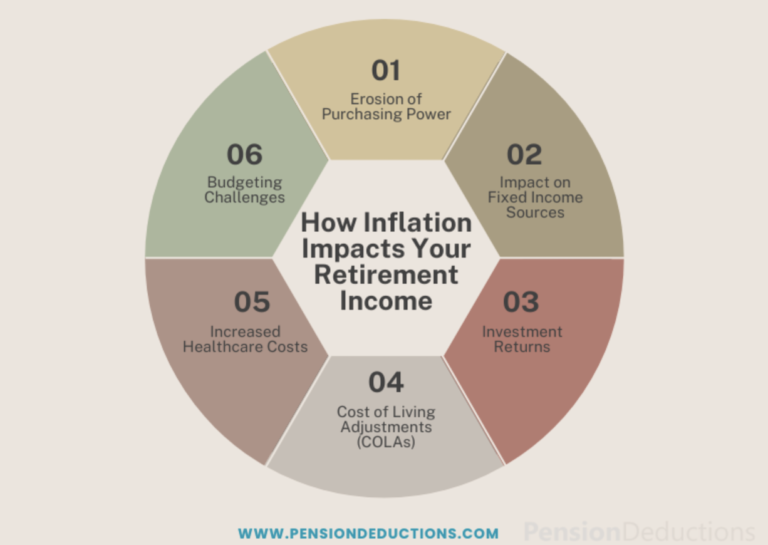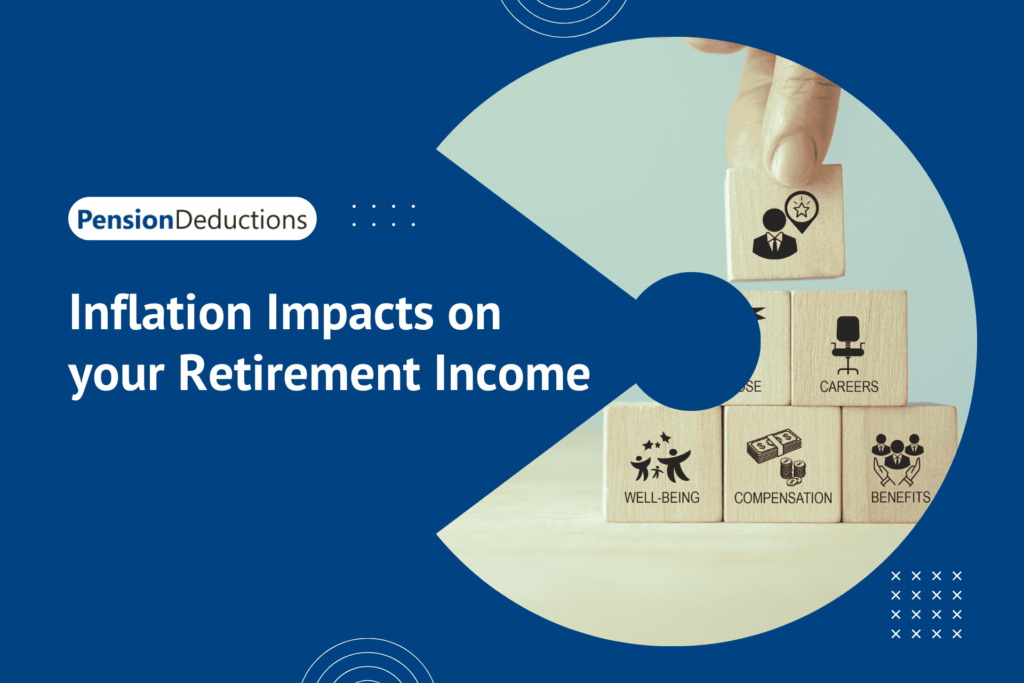How Inflation Impacts on your Retirement Income
Retirement is a significant milestone in life, often representing years of hard work and savings. However, the economic landscape, particularly inflation, plays a crucial role in determining the sustainability of retirement income. Understanding how inflation impacts on your retirement is essential for effective financial planning. In this blog, we will explore the latest information on inflation and its effects on retirement income, highlighting strategies to mitigate its adverse effects.
Understanding Inflation
What is Inflation?
Inflation refers to the rate at which the general level of prices for goods and services rises, eroding purchasing power. In the United States, the Consumer Price Index (CPI) is commonly used to measure inflation. A steady increase in inflation can significantly impact your retirement income, making it crucial to understand its implications. The inflation impacts on your retirement savings can be profound.
Recent Trends in Inflation
Schedule a Free Consultation Now!
Impacts of Inflation on your Retirement Income
Erosion of Purchasing Power
One of the most significant effects of inflation is the erosion of purchasing power. When inflation rises, the same amount of money buys fewer goods and services. This phenomenon directly affects retirees who rely on fixed incomes, such as pensions or annuities. As the cost of living increases, the real value of these fixed incomes diminishes, showcasing the inflation impacts on your retirement planning.
Example: A Real-World Scenario
Impact on Savings and Investments
Balancing Your Portfolio

Strategies to Combat Inflation
Adjusting Retirement Plans
Given the inflation impacts on your retirement income, consider adjusting your retirement plans to account for rising costs. Here are some strategies to consider:
Incorporate Inflation Protection in Investments
Investing in assets that typically keep pace with inflation, such as real estate or commodities, can provide a hedge against the inflation impacts on your retirement income. Consider allocating a portion of your portfolio to these types of investments.
Consider Inflation-Linked Bonds
Inflation-linked bonds, like Treasury Inflation-Protected Securities (TIPS), can help protect your purchasing power. These bonds adjust their principal value with inflation, ensuring that your investment maintains its value against the inflation impacts on your retirement funds.
Increase Savings Contributions
Maximize Retirement Accounts
Contribute the maximum allowable amount to retirement accounts, such as 401(k)s and IRAs. These accounts often offer tax advantages that can help your savings grow more effectively, countering the inflation impacts on your retirement savings.
Establish an Emergency Fund
An emergency fund can provide a safety net, allowing you to avoid dipping into retirement savings during unexpected expenses. This approach helps preserve your retirement income from the inflation impacts on your retirement planning.
Review and Adjust Your Budget
Monitor Spending Patterns
Keep track of your spending and adjust your budget based on changes in prices. By being aware of your spending habits, you can make informed decisions about where to cut back if necessary, thereby addressing the inflation impacts on your retirement expenditures.
Reassess Fixed Expenses
Evaluate your fixed expenses, such as housing costs and insurance premiums, and explore options for reducing these expenses. This reassessment can free up more funds for investments that outpace inflation, helping to mitigate the inflation impacts on your retirement income.
Conclusion
In conclusion, inflation significantly impacts retirement income, affecting purchasing power and the value of savings and investments. Understanding how inflation impacts on your retirement is crucial for effective financial planning. By implementing strategies such as diversifying investments, adjusting retirement plans, and regularly reviewing budgets, you can mitigate the adverse effects of inflation on your retirement income.
As you navigate your retirement planning journey, staying informed about economic trends and adjusting your strategies accordingly will help ensure a more secure financial future.
SHARE THIS POST
Generation X and Retirement: Discover smart strategies to avoid costly mistakes and secure your future with effective financial planning.
Year-end financial planning in the USA helps optimize retirement savings, reduce taxes, and secure your future with proactive strategies.
Discover why Fidelity Investment remains a top choice in 2024, offering low costs, advanced tools, and innovative solutions for every investor.
Learn how the Social Security Administration impacts retirement in 2024, including benefit calculations, eligibility, and strategies for maximizing your Social Security income.


